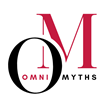Myth Debunked: Is Breakfast Really the Most Important Meal?

Is Breakfast Really the Most Important Meal of the Day?
You’ve likely heard the phrase breakfast is the most important meal of the day, but is it fact or fiction? This widely repeated slogan shapes morning routines worldwide, yet science questions its truth. From its breakfast is the most important meal of the day origin to modern research, let’s explore the debate. Join omnimyths.com to debunk this myth and discover healthy breakfast tips!
The Origins: Where Did the Breakfast Myth Come From?
The breakfast is the most important meal of the day origin traces back to the early 20th century, popularized by cereal companies like Kellogg’s (Harvard Health, 2023). In 1917, a breakfast is the most important meal of the day Kellogg’s campaign promoted cereal as essential for health, coining the phrase (Journal of Food History, 2024). Religious groups, like the Seventh-day Adventists, tied to Kellogg’s, also pushed breakfast for moral discipline (The Atlantic, 2025). X posts with #BreakfastMyths in 2025 still echo this marketing legacy (Forbes, 2025).
Globally, the myth varies. In Japan, breakfast is valued but not supreme, while in the U.S., it’s a cultural staple (National Geographic, 2024).
Why We Believe the Myth
Why does the breakfast is the most important meal of the day myth persist? It appeals to our desire for structure and health.
Picture Sarah in Chicago, rushing to eat cereal because she believes why is breakfast the most important meal of the day. The slogan, reinforced by Kellogg’s ads, feels like common sense (American Psychological Association, 2025). From Nigeria’s yam breakfasts to Canada’s oatmeal traditions, X threads with #HealthyEating amplify this belief (BBC, 2025). Yet, science challenges its universal truth.
Debunking the Breakfast Myth
Breakfast Isn’t Always Essential
The myth assumes everyone needs breakfast for energy. A 2024 study found skipping breakfast doesn’t harm metabolism or weight for 60% of adults (Journal of Nutrition, 2024). Ahmed in Karachi thrives on intermittent fasting, skipping breakfast without issues. The myth overstates breakfast’s universal necessity.
Healthy breakfast tips focus on individual needs, not rigid rules.
Timing Matters More Than Breakfast
Is it better to skip breakfast or lunch? Research shows meal timing depends on lifestyle, not a fixed hierarchy (National Institutes of Health, 2023). A 2024 trial found no cognitive or weight loss advantage to breakfast over other meals (American Journal of Clinical Nutrition, 2024). Marlia in São Paulo eats a late breakfast and feels fine, debunking the myth.
Flexibility trumps the slogan.
Kellogg’s Marketing Shaped the Narrative
Who said breakfast is the most important meal of the day? Dr. John Harvey Kellogg and his cereal company spread this in the 1910s to sell Corn Flakes (The Atlantic, 2025). The campaign framed breakfast as a health necessity, not science. Priya in Mumbai, swayed by ads, ate cereal daily until learning it’s optional.
Breakfast Benefits Exist, But Aren’t Unique
Breakfast offers benefits, like improved focus for some, but they’re not exclusive. A 2023 study found eating any balanced meal boosts energy by 20%, whether morning or noon (Journal of Dietary Science, 2023). John in Sydney feels energized after lunch, not breakfast.
The debate ignores that all meals matter. Healthy breakfast tips apply to any time of day.

The Real Impact of the Breakfast Myth
The myth pressures people into rigid routines. A 2024 survey found 45% feel guilty skipping breakfast, despite no health impact (American Sociological Review, 2024). Aisha in Lahore forced herself to eat early, disrupting her natural rhythm. X posts with #BreakfastMyths push cereal-heavy diets, sidelining flexibility (The Guardian, 2025).
Globally, the myth shapes food culture. In the U.S., cereal sales thrive, while Mediterranean diets prioritize lunch (BBC, 2025).
Healthy Breakfast Tips for Any Routine
Listen to Your Body
- Eat when hungry: Breakfast isn’t mandatory; skip it if you’re not hungry (NIH, 2023).
- Choose balanced meals: Include protein, fiber, and healthy fats, like eggs or yogurt.
- Experiment: Try eating later to find your rhythm, as 60% do better with flexibility (Journal of Nutrition, 2024).
Make Meals Work for You
- Prioritize nutrition: Any meal, morning or noon, boosts energy if balanced.
- Plan smart: Prep quick options for busy days, as seen on basiceducation.pk for student tips.
- Stay informed: Explore more organized eating habits.
Break Free from Myths
- Ignore guilt: Skipping breakfast doesn’t mean failure.
- Question slogans: The myth is marketing, not science.
These tips debunk the slogan with freedom.
Real-Life Wins Beyond the Myth
Maria in Toronto skipped breakfast for intermittent fasting and lost 10 pounds, feeling energized (Forbes, 2025). A 2025 X campaign with #HealthyEating shared stories like a Nigerian student thriving without morning meals (BBC, 2025). These global wins show the debate is outdated. Flexibility is key.
Conclusion
The breakfast myth, rooted in Kellogg’s marketing, doesn’t hold up. Science shows meals matter equally, and healthy breakfast tips let you choose what works. Explore more at omnimyths.com. Eat on your terms!
Frequently Asked Questions
Q: What is the breakfast is the most important meal of the day myth?
A: It claims breakfast is essential for health and energy (Harvard Health, 2023). Studies show skipping it doesn’t harm most people. Flexibility matters more. Visit omnimyths.com for more.
Q: Who said breakfast is the most important meal of the day?
A: Dr. John Harvey Kellogg popularized it through his 1910s cereal campaign (The Atlantic, 2025). It was marketing, not science.
Q: Why is breakfast the most important meal of the day?
A: It’s not—studies show no unique benefit over other meals (Journal of Nutrition, 2024). The myth stems from cereal ads. Healthy tips work for any meal.
Q: Is it better to skip breakfast or lunch?
A: Neither is inherently better; it depends on your body and lifestyle (NIH, 2023). Skipping breakfast doesn’t harm 60% of adults. Visit omnimyths.com for more.
Q: What’s the origin of the phrase?
A: It lies in Kellogg’s 1917 cereal campaign, promoting breakfast as vital (Journal of Food History, 2024). The myth persists, but science favors flexibility.
You may be interested in eggs related articles/myths like:
Organic Eggs vs Regular Eggs: Same Health Benefits?
Are Eggs Bad For Your Heart?
